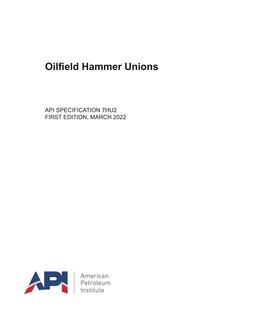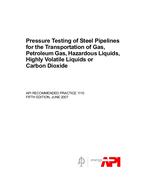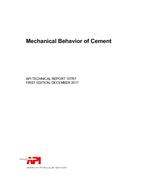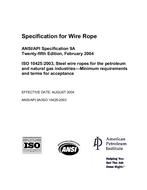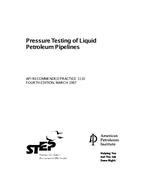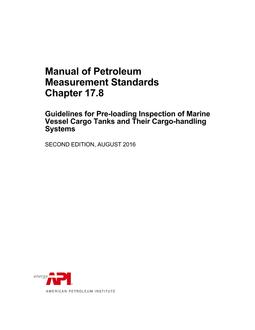
API RP 1110
This Recommeded Practice (RP) applies to all parts of a pipeline or pipeline facility including line pipe, pump station piping, terminal piping, compressor station piping, metering station piping, delivery station piping, regulator station piping, appurtenances connected to line pipe, appurtenances connected to facility piping, fabricated assemblies, valves, tees, elbows, reducers, flanges, and any other pipeline equipment or appurtenances.
This RP does not apply to pumping units, compressor units, breakout tanks, pressure vessels, control piping, sample piping, instrument piping/tubing, or any component or piping system for which other codes specify pressure testing requirements (i.e. ASME Boiler and Pressure Vessel Code, piping systems covered by building codes).
This RP does not address piping systems that are pressure tested with natural gas, nitrogen, or air.
Product Details
- Edition:
- 7th
- Published:
- 12/01/2022
- ANSI:
- ANSI Approved
- Number of Pages:
- 37
- File Size:
- 1 file , 1.2 MB
- Product Code(s):
- D111007, D111007, D111007
- Note:
- This product is unavailable in Russia, Cuba, Syria, North Korea, Ukraine, Belarus, Iran

